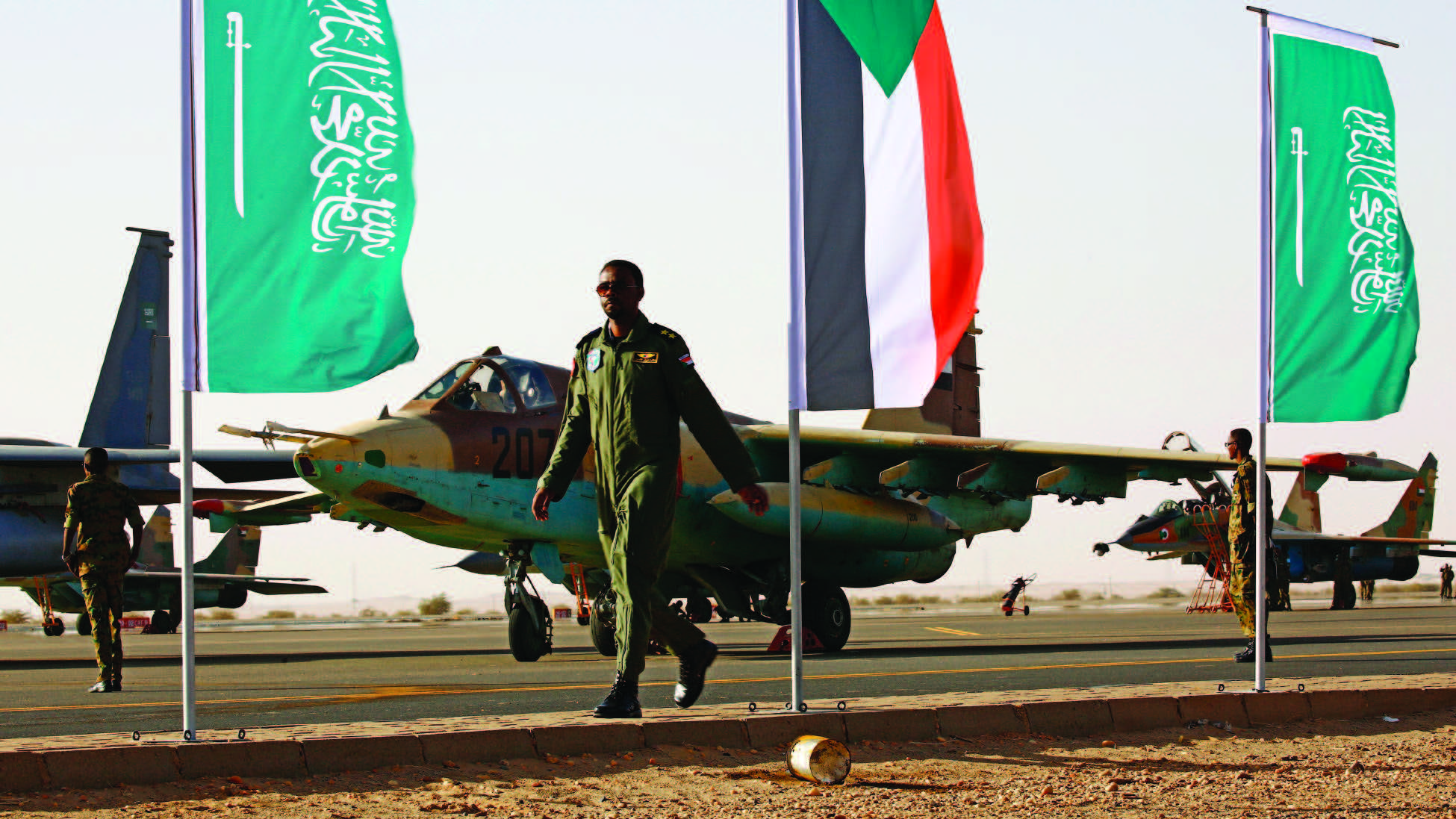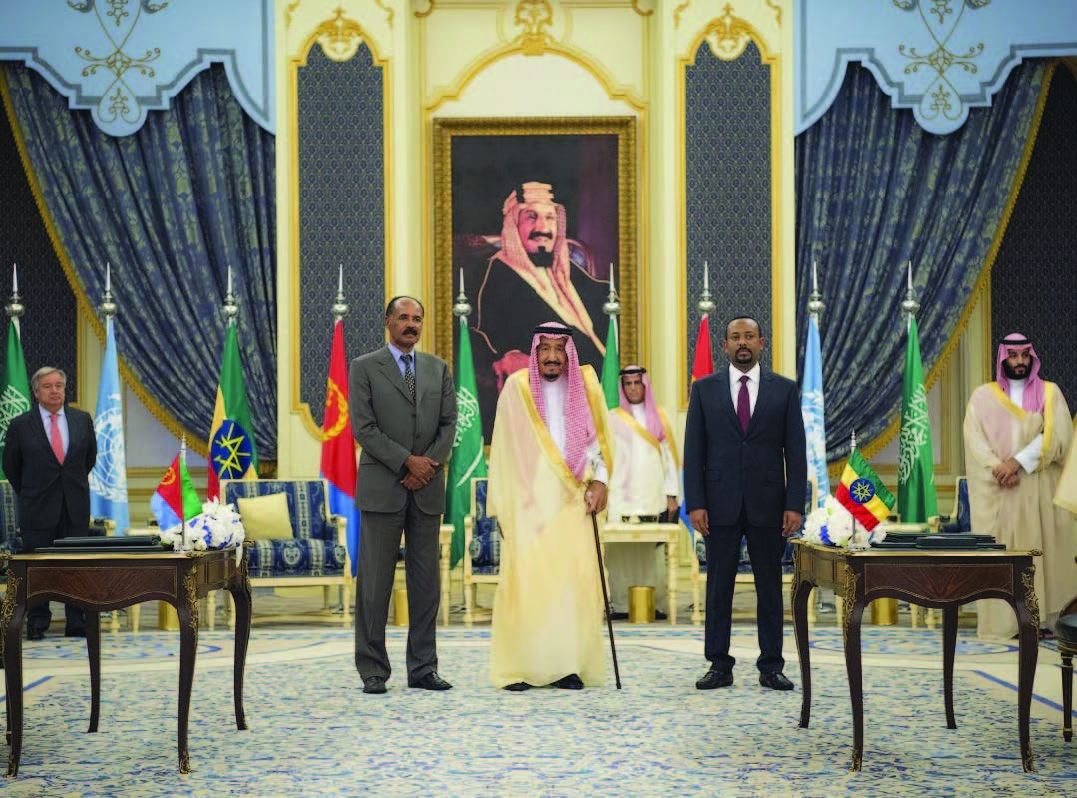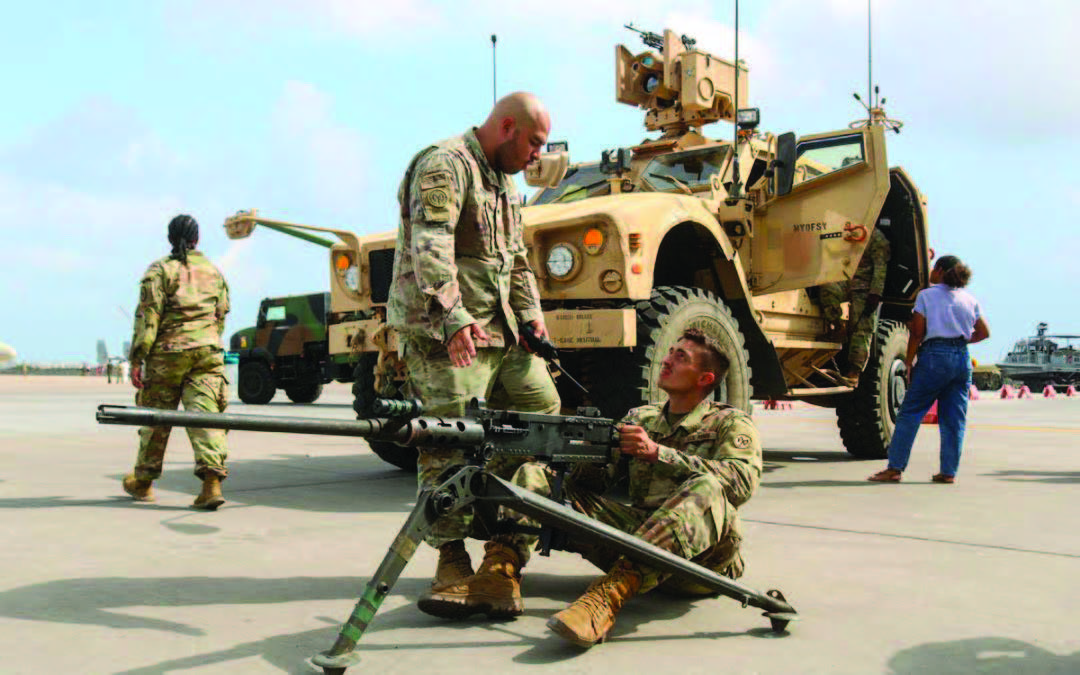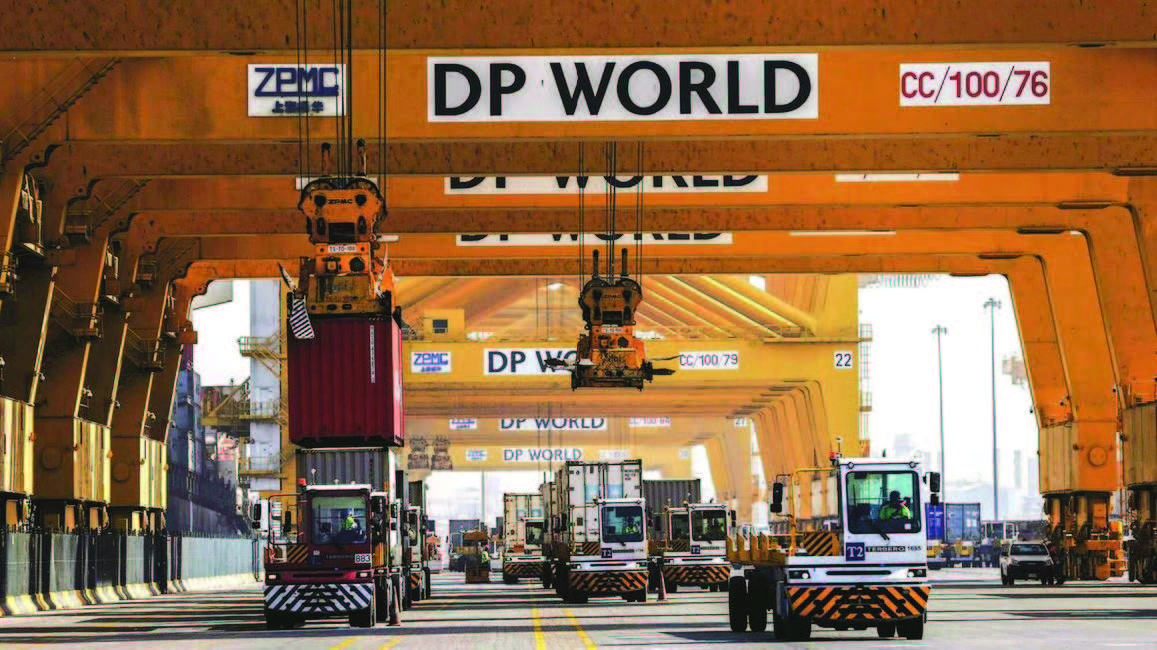
The Gulf States which include countries such as Qatar, Turkey, United Arab Emirates (UAE), Saudi Arabia, Kuwait, Bahrain and Oman have significantly intensified their engagement in Eastern Africa over the past decade. This growing influence is driven by a combination of economic interests, security concerns, and geo-strategic ambitions. As these nations seek to diversify their economies and extend their geopolitical reach, Eastern Africa has emerged as a critical area of interest. This paper seeks to evaluate the nature of Gulf States’ involvement in Eastern Africa and its implications on regional security, focusing on key areas such as economic investments, military presence, and diplomatic relations.
Eastern Africa has become a significant focal point for Gulf States due to a blend of strategic, economic, and geopolitical factors. Its strategic location near the Red Sea and the Gulf of Aden is crucial for global maritime trade routes, particularly for oil and gas exports. Control over ports and the Bab-el-Mandeb Strait, a vital chokepoint for global energy supplies, allow Gulf States to secure vital shipping lanes, ensuring their economic stability and dominance in global trade[1].
Additionally, the region also offers vast economic opportunities that help Gulf States diversify their investments and reduce oil dependency. Investments in infrastructure, agriculture, and energy sectors are particularly attractive due to Eastern Africa’s growing economies and developmental needs[2]. Gulf States have made substantial investments in Eastern Africa’s infrastructure. Key projects undertaken in the region include ports, airports, roads, and railways, which enhance connectivity and trade. The UAE’s DP World, a Dubai based firm that operates port and marine terminals worldwide, has been particularly active, developing port facilities in some Eastern Africa countries such as Kenya, Djibouti, Tanzania and Somalia to establish key maritime hubs[3]. Agricultural projects in states like Sudan and Ethiopia are also critical as they help secure food supplies for the Gulf, while investments in oil and gas reserves in countries like Mozambique and Tanzania diversify their energy sources.
On security, Gulf States such as Turkey and UAE have established their military bases in Eastern African countries such as Somalia, Eritrea and Djibouti, while also providing a variety of security assistance. This has enabled Gulf States to expand their geopolitical influence thereby projecting power and securing their interests. These bases are pivotal for controlling vital maritime routes and countering potential threats such as terrorism and piracy.
Additionally, the Gulf States have positioned themselves as key mediators in Eastern African conflicts. This has proved to be essential in elevating their diplomatic status and their importance in Eastern Africa politics. Most peace processes especially in the Horn of Africa (HoA) have seen the presence of Saudi Arabia and UAE[4]. For instance, Qatar’s mediation in Sudan’s Darfur conflict and the UAE’s role in brokering peace in Ethiopia and Eritrea are significant examples of their diplomatic engagement.

The growing presence of Gulf States in Eastern Africa has on the other hand significantly exacerbated geopolitical rivalries in the region, primarily by introducing new layers of complexity to existing conflicts and power struggles[5]. Countries like Saudi Arabia, the UAE, and Qatar, each with distinct strategic interests and rivalries among themselves, often pursue competing agendas in Eastern Africa. For instance, the rift between Qatar and the Saudi-UAE alliance has seen each side vying for influence by backing different political factions and governments within Eastern African nations. This external competition has intensified internal divisions, as local actors align themselves with different Gulf actors to gain economic aid, military support, or political legitimacy. The UAE’s backing of certain leaders in Somalia, contrasted with Qatar’s and Turkey’s support for others, which has fueled political instability and factionalism, complicating efforts for national unity and effective governance.
Militarization associated with the Gulf States’ presence in the region has also added to Eastern Africa’s regional tensions. For instance, the establishment of military bases by the UAE in Eritrea and Somaliland, as well as Turkey’s base in Somalia, has transformed these areas into strategic military outposts. This presence not only raises suspicions and tensions among neighboring countries but also escalates the potential for direct confrontations and proxy conflicts. The strategic importance of the Bab-el-Mandeb Strait and the Red Sea corridor means that control over these areas is highly contested, with Gulf States’ military activities perceived as efforts to dominate crucial maritime routes. As a result, this has led to an arms race and heightened military posturing, undermining regional stability and complicating international efforts to mediate and resolve conflicts in Eastern Africa.

Their growing presence in the region also raises significant concerns about regional economic dependence and sovereignty. Substantial investments from countries like Saudi Arabia, the UAE, and Qatar can create imbalances in the economic relationships between the Gulf States and Eastern African nations. As Eastern African states seek alternatives to the diminishing Chinese loans and Western aid, they have turned to Gulf countries for financial aid. When Gulf States provide substantial financial aid or invest in critical infrastructure, they often expect political and diplomatic alignment in return. For instance, the alignment of certain Eastern African countries with Saudi Arabia and the UAE against Qatar and Turkey during the Gulf diplomatic crisis showcases how economic ties can translate into political pressure[6].
Moreover, such investments may result in an overdependence on Gulf capital and expertise, potentially sparking significant protests fueled by nationalist sentiments. For example, the UAE’s investments in port development and logistics infrastructure, while beneficial for trade, can lead to situations where Eastern African economies become heavily dependent on Gulf financing and management. This dependence can undermine the host countries’ ability to independently control and manage their key economic assets, making them vulnerable to external economic pressures and policy shifts dictated by the Gulf States. For instance, the multimillion-dollar deal signed between UAE’s DP World and Tanzania in October 2023 over the control of two-thirds of Dar es Salaam, port for the next 30 years raised countrywide protests where activists asserted that the deal violated Tanzania’s constitution and interfered with their national sovereignty[7].

Gulf States growing presence further raises significant concerns about the potential for these states to leverage their substantial financial power to influence regional organizations like IGAD. This could lead to situations where regional initiatives and policies are increasingly shaped by external influences rather than genuine needs and aspirations of the member states. This influence can manifest in various ways, including the prioritization of Gulf States’ strategic interests over the broader objectives of regional stability and development. Additionally, this dynamic can also create divisions within Eastern Africa regional organizations, as member states that benefit more from Gulf investments might support policies favorable to the Gulf states, while others may resist, leading to fragmentation and weakened regional cohesion.
In conclusion, growing influence of Gulf States in Eastern Africa presents both opportunities and challenges. While their investments and security cooperation can contribute to regional development and stability, they also pose risks related to economic dependence, geopolitical rivalries, and militarization. It is therefore crucial for Eastern African countries to navigate these dynamics carefully, balancing the benefits of Gulf engagement with the need to maintain sovereignty and regional stability.
To this end, Eastern Africa states should diversify their sources of investments to avoid overreliance on Gulf States. This can be achieved by supporting of local businesses through subsidies, grants, and favorable policies to reduce dependence on foreign capital and expertise. Additionally, Eastern Africa governments should strengthen regional security institutions to adequately address security concerns. Enhanced regional cooperation and coordination among member states through regional institutions like AU, IGAD and EAC can improve regional stability and reduce the influence of external actors. Similarly, regional governments should encourage trade among Eastern African countries to reduce economic dependence on external actors. Removing trade barriers, harmonizing regulations, and investing in regional infrastructure projects such as transportation and energy networks will encourage intra-regional trade. Furthermore, Eastern African states should collaborate and develop a unified strategy for engaging with Gulf States. This includes setting common positions for foreign investments and ensuring that these investments align with regional development goals.
[1] Seeing Red: Trade and Threats Shaping Gulf-Horn Relations
[2] 2024 comes with dangers, opportunities in Greater East Africa
[3] Inside UAE’s plan to control African ports business through DP World
[4] 2024 comes with dangers, opportunities in Greater East Africa
[5] Intra-Gulf Competition in Africa’s Horn: Lessening the Impact
[6] Intra-Gulf Competition in Africa’s Horn: Lessening the Impact
[7] DP World in Tanzania: The UAE firm taking over Africa’s ports
